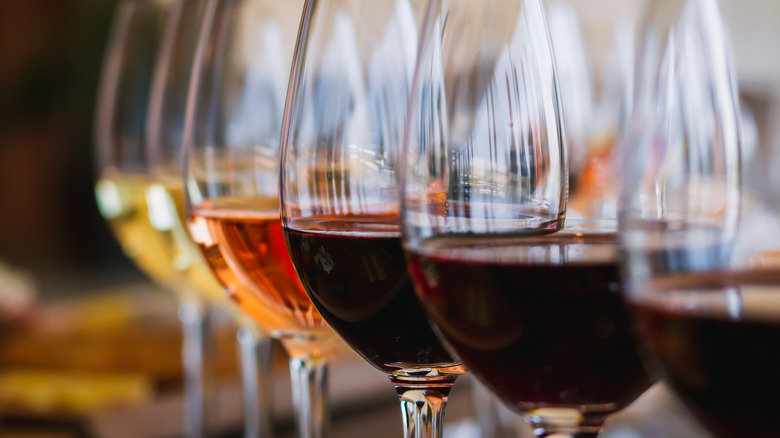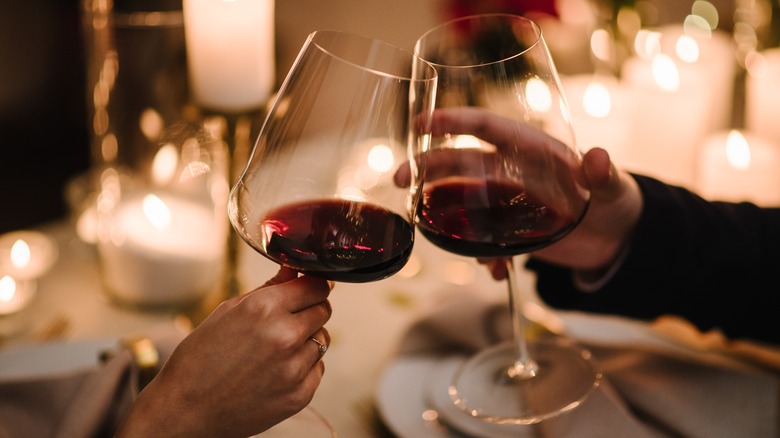The Etiquette Tip To Keep In Mind When Serving Wine In France
France is practically synonymous with wine, which has been deeply rooted in the country's culture for centuries. There are 11 different wine regions in France, and you can taste your way through the different areas with the distinctive wines of each. These wines have had a profound influence on the rest of the world, too — varieties developed in France like Cabernet Sauvignon and Syrah have been taken up by producers from California to Australia.
Considering wine is woven into French culture and the daily lives of French people, it's no surprise there are do's and don'ts around serving and imbibing — meant to ensure every glass is fully appreciated. Similarly in the United States, we have etiquette tips that ensure a more pleasant wine-tasting experience.
In France, when you are serving wine, it's seen as bad form to fill the glass all the way up. The French believe wine is to be savored; pouring only a few ounces of wine at a time lets the wine breathe and encourages slow, thoughtful sipping. Letting wine breathe a bit is important because exposure to oxygen will soften some of those harsher tannins, while simultaneously helping various flavors and aromas present in the wine bloom. With each glass poured abiding by this French rule, wine is presented in its finest form, with all of its flavors on display. Likewise, drinking that glass too quickly is also a no-no.
Other French wine etiquette tips to know
It's always a good idea to be familiar with dining and imbibing etiquette in other countries so you can enjoy yourself, confident you won't cause any snafus. In France, there are several other manners to know related to the practice of not filling the entire wine glass. It may seem old-fashioned, but it's customary for men to pour the wine for the women present — this is just considered polite, like a man holding the door for a woman.
Once everyone has had their glass filled about halfway with whatever wine is being served with dinner (wine is typically consumed only with meals), it is important to wait before starting in on that wine. The host may wish to say a toast first. Even if they don't, everyone at the table might want to do a little "cheers." This is "santé" in French, meaning "to good health," and you should always make eye contact with whoever you're clinking glasses with.
Don't put ice in your wine even if you tend to prefer chilled wine at home. Again, this is all about savoring the wine the way the vintner intended. Throughout the meal, the host will refill any empty glasses, so anyone who does not want more leaves a tiny bit in their glass. All wine is typically finished by the time the meal is done, at which point the imbibing switches to after-dinner cocktails and spirits called digestifs.

